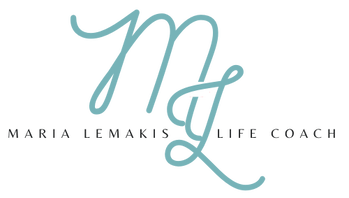|
Are you already procrastinating your New Year’s resolutions? Finding yourself scrolling social media to avoid that thing you said you would do? (Same!)
Procrastination, like many self-sabotaging tendencies, is rooted in emotion. We might experience:
1. Identify the emotion you are experiencing – this alone can help reduce the emotion by up to 50%. Not sure how to pinpoint the emotion? Try using this emotions wheel. 2. Ask yourself helpful questions about that emotion, i.e.:
Research shows that taking even one small action can help reduce anxiety, since anxiety often comes from thinking (and overthinking!) about the things we need to do. Examples of actions to take:
4. (Bonus!) Celebrate small wins. Did you finally START the task you were putting off? Take a moment to breathe, say a prayer of gratitude, congratulate yourself, take a walk, buy yourself flowers – whatever you need in order to give yourself the recognition you deserve. Notice what you accomplished and how you overcame whatever was holding you back. Write it down. How will you continue this momentum and implement this lesson going forward?
0 Comments
Everyone seems to be talking about goals and New Year’s resolutions this time of year. Setting goals is wonderful – but if we stop there, we may be setting ourselves up to fail!
Put simply, success in reaching our goals is determined by how personally invested we are in those goals, the process we use to plan and carry them out, and the motivation, energy and support we have along the way. So – how do we set ourselves up for success in 2024? 1. Prioritize quality over quantity. First, determine how important each goal is to your life, and make sure you have the self-motivation to pursue each one. Ask yourself:
If the number of goals you have feels overwhelming, it may be helpful to rank your goals in order of importance. Use the above questions as a guide; then, rank your list, and focus on your top 1-3 goals – or any number that feels realistic yet challenging enough to you. 2. Use the right goal-setting formula. Some people thrive with specific daily goals, which may or may not be connected to a larger goal. Some people work best with a general vision or direction, and flexibility to fill in the blanks as they go. Understanding your planning style will help you know how to set goals that resonate with you. To understand your style, ask yourself:
As author James Clear reiterates in his book Atomic Habits, we tend to fail in reaching a goal if we focus too much on the goal iteslf – and not enough on the process behind it. If we know where we want to go, we must also be mindful of how we’ll get there! For each of your goals, ask yourself (adjusting as needed for your planning style):
Chances are, reaching our goals requires us to overcome challenges or habits that tend to get in our way. If we didn’t face these challenges, all of our goals would already be met and we wouldn’t need to set them in the first place! For each goal, ask yourself:
Support is essential to our success and fulfillment as human beings. In fact, the evidence-based Intentional Change Theory holds that “a set of trusting, growth-fostering relationships” is important to create positive, sustainable change (more here). For each of your goals, ask yourself:
Even with the best of intentions, sometimes, we just can’t seem to meet that recurring goal year after year–which may indicate that there’s a bigger obstacle at the root. Or, we don’t have the support/accountability we really need to meet our goals. We may need help getting clarity on our bigger vision and values, or simply with planning our goals. A coach can help with all of these things! I'd love to support your success in becoming an even better version of yourself in 2024. |
AuthorMaria Lemakis helps people find fulfillment in life and work through empathic and intuitive coaching + communications expertise. It brings her deep joy to support clients in reaching their goals, and finding happiness and purpose. ArchivesCategories |

 RSS Feed
RSS Feed